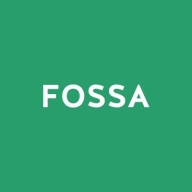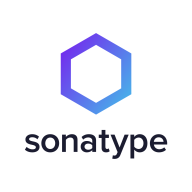

Sonatype Lifecycle and FOSSA are leading solutions in the open-source governance and compliance market. Sonatype Lifecycle has the upper hand due to its comprehensive integrations and proactive security capabilities, although FOSSA excels in license compliance and interoperability.
Features: Sonatype Lifecycle supports a wide range of integrations and offers proactive security capabilities, making it ideal for automating open-source governance. It provides reliable vulnerability alerts and alternative secure suggestions, enhancing continuous monitoring. FOSSA is strong in license compliance, deep dependency scanning, and industry-leading interoperability. It efficiently handles open-source management with automated processes and precise policy adherence.
Room for Improvement: Sonatype Lifecycle needs improvement in integration with certain platforms like TeamCity, broader language support, and real-time notifications. Users experience issues with transitive dependencies and plugin limitations. FOSSA could benefit from better project categorization, in-app triage enhancements, and expanded reporting capabilities. Users report challenges in managing numerous projects and dependencies and inadequate support for snippet matching and security scanning.
Ease of Deployment and Customer Service: Sonatype Lifecycle is typically deployed on-premises, offering flexibility with private and hybrid cloud configurations. It is praised for its quick response and thorough assistance. FOSSA is favored for its cloud deployment options and ease of setup, supported by a responsive technical team. While Sonatype's engagement structure is well-regarded, FOSSA's straightforward deployment and helpful customer service are notable.
Pricing and ROI: Sonatype Lifecycle's pricing is competitive and fair, though some find it slightly expensive, particularly with additional feature packs. Its bundled licensing model offers flexibility with significant ROI from improved security hygiene and reduced technical debt. FOSSA's pricing is average but justified by its comprehensive feature set. It is recognized for cost-effectiveness, particularly in legal and compliance contexts. Both solutions provide ROI in security improvements and operational efficiencies, though Sonatype users sometimes express concerns about added costs for feature expansions.


Sonatype Lifecycle is an open-source security and dependency management software that uses only one tool to automatically find open-source vulnerabilities at every stage of the System Development Life Cycle (SDLC). Users can now minimize security vulnerabilities, permitting organizations to enhance development workflow. Sonatype Lifecycle gives the user complete control over their software supply chain, allowing them to regain wasted time fighting risks in the SDLC. In addition, this software unifies the ability to define rules, actions, and policies that work best for your organizations and teams.
Sonatype Lifecycle allows users to help their teams discover threats before an attack has the chance to take place by examining a database of known vulnerabilities. With continuous monitoring at every stage of the development life cycle, Sonatype Lifecycle enables teams to build secure software. The solution allows users to utilize a complete automated solution within their existing workflows. Once a potential threat is identified, the solution’s policies will automatically rectify it.
Benefits of Open-source Security Monitoring
As cybersecurity attacks are on the rise, organizations are at constant risk for data breaches. Managing your software supply chain gets trickier as your organization grows, leaving many vulnerabilities exposed. With easily accessible source code that can be modified and shared freely, open-source monitoring gives users complete transparency. A community of professionals can inspect open-source code to ensure fewer bugs, and any open-source dependency vulnerability will be detected and fixed rapidly. Users can use open-source security monitoring to avoid attacks through automatic detection of potential threats and rectification immediately and automatically.
Reviews from Real Users
Sonatype Lifecycle software receives high praise from users for many reasons. Among them are the abilities to identify and rectify vulnerabilities at every stage of the SDLC, help with open-source governance, and minimize risk.
Michael E., senior enterprise architect at MIB Group, says "Some of the more profound features include the REST APIs. We tend to make use of those a lot. They also have a plugin for our CI/CD.”
R.S., senior architect at a insurance company, notes “Specifically features that have been good include:
• the email notifications
• the API, which has been good to work with for reporting, because we have some downstream reporting requirements
• that it's been really user-friendly to work with.”
"Its engine itself is most valuable in terms of the way it calculates and decides whether a security vulnerability exists or not. That's the most important thing. Its security is also pretty good, and its listing about the severities is also good," says Subham S., engineering tools and platform manager at BT - British Telecom.
We monitor all Software Composition Analysis (SCA) reviews to prevent fraudulent reviews and keep review quality high. We do not post reviews by company employees or direct competitors. We validate each review for authenticity via cross-reference with LinkedIn, and personal follow-up with the reviewer when necessary.